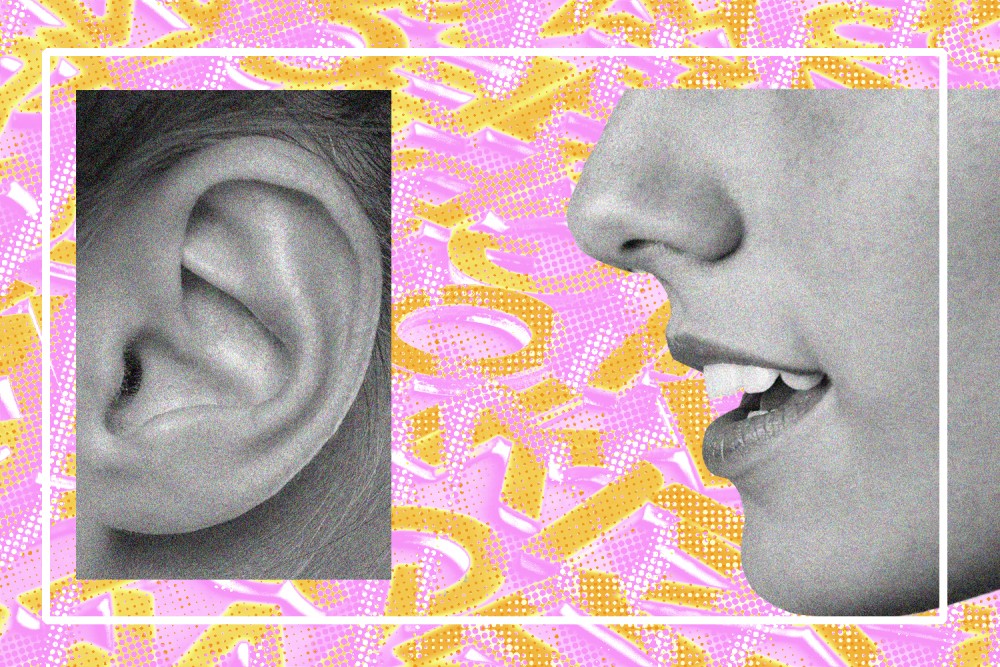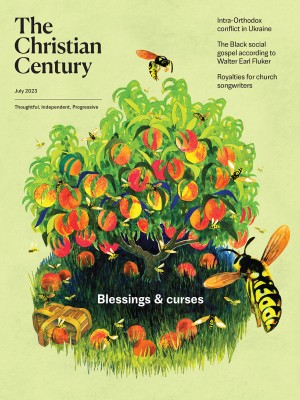
(Century illustration / Source images: Getty)
We often talk about a particular translation as “doing justice” to a text. By that, we mean that it expresses it fully—that whatever heights of prose or sleights of hand the author concocted in the original language, the translator managed to do the same, backward and in heels. When a translation is “just,” it has seen and considered and transmitted into a new language all of the facets and possibilities inherent in a text.
There’s another sense of the phrase “do justice,” of course, and it involves our orientation toward other people. There too, we value seeing people for what they are, considering both their flaws and possibilities, and allowing them to flourish as best we can.
Read our latest issue or browse back issues.
I’ve spent the past several years thinking about both kinds of justice. I’m both a translator and an immigration rights advocate, and my book Rivermouth: A Chronicle of Language, Faith, and Migration circles around this idea of doing justice both on the page and in the world.
I was, in a lot of ways, a translator before I was an immigration advocate. A thing I’ve always loved about translation is the way that it allows you—sometimes forces you—to reach beyond the edges of yourself and your abilities. When you’re a translator, you’re by necessity spending a lot of time immersed in someone else’s words, their sentences, the particular way they link one thought to another. There’s no way to pay that kind of attention without it turning, Simone Weil–like, into a kind of love.
This love is manifested in a desire to do justice to the text, but I find myself stuck with the fact that I am not, in fact, the person who wrote the original text, I’m still just myself. And as I translate, I almost always get this sense that if I could just stretch a little bit beyond myself, be a little quicker, a little better read, I might actually be able to do justice to this work I’ve so come to love and admire in the time I’ve been sitting with it.
Part of this is because in order to translate well you have to really understand the text. If you miss a joke or an allusion, that won’t show up for the reader in a new language. A note in the chord of the text falls silent. It’s not a big deal, maybe—most people won’t know what they’re missing, or they’ll have a sneaking suspicion that literature in translation is “less than” anyways—but nevertheless, as a literary translator, there’s nothing that keeps me up more than the idea of doing a reading so constrained by my own experiences that my translation is constrained by them too.
However, in the other kind of translation work I do, the idea of not doing justice has implications far, far greater than someone missing the full range of an author’s brilliance.
I came into immigration advocacy work as a translator. I started out doing interpretation and translation as part of a pro se clinic for people who were getting ready to represent themselves in their asylum hearings. Winning their case would allow them to stay in the United States and begin building a life here; losing might mean deportation to a country that had been too dangerous to stay in.
My co-volunteers and I would sit with people and ask them questions about the worst things that had happened to them so we could note it down on a government form. We would translate and reshape their answers to fit in the form’s tiny boxes and then staple a photograph of them to this form, photocopy it, and return it to them so they could submit it to the immigration court in triplicate. That work, as strange and bureaucratic as parts of it felt, also called for care and attention, for spending time alongside someone else’s mind and words and ideas. It also called me into a kind of love.
And importantly, it also called me into a desire to be greater than I was. This desire is different from the one that comes out in the middle of literary translation. It’s more urgent, more all-encompassing, a feeling that instead of wanting to be a little smarter, a little wittier, I need instead to be better or braver than the person I am. That the person sitting across the table from me, who is themself being incredibly brave in confronting the traumas of their past, in insisting with their whole lives that they deserve better—may, in fact, deserve someone better than me to take down their words, to help them make the US government understand how important it is that they be allowed to stay. And just like with translating, I’m stuck with the fact that I’m just myself—no less and no more.
It’s no wonder then that the idea of ordinary people becoming masked crime fighters is so prevalent in our fiction. If I felt that tights and a leotard and ten hours a week of martial arts training were what I needed to make sure no one got deported, you can bet I’d be making a go of it. I wish we lived in a world where seeking justice for ourselves and others didn’t involve efforts that feel, at times, superhuman. Then again, it’s all the best things that make us want to be more than we are—love, faith, creativity. In a way, a desire for justice is love for another enacted and made real, both on and off the page.






